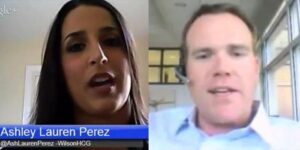
Reboot: Personal Brands and the #TFT13 Conference
Conferences: Who’s redefining the concept, and what does it mean for professional communities and personal brands? The case for crowdsourcing

Conferences: Who’s redefining the concept, and what does it mean for professional communities and personal brands? The case for crowdsourcing

As business looks for new sources of competitive advantage, how can innovative workforce strategies lead the way? HRO Today Forum creator, Elliot Clark, examines the latest research findings with the TalentCulture community…

Even today, negative stereotypes can cast a shadow over our professional lives. See what experts from a top recruiting outsourcing firm say about labels in the workforce – this week’s focus on #TChat…